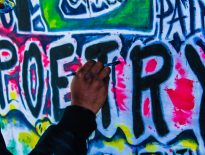About 12 years ago, Professor Michael Sandel, in his Harvard Lecture on “Justice: What’s the Right Thing to Do? The Moral Side of Murder” discussed the moral dilemma involved in taking particular decisions in different sets of scenarios.
What would you do if you had to choose between killing one person to save five others or doing nothing even though you knew five people would die right before your eyes? What would you do? Professor Michael Sandel began his course on moral reasoning with that case. When the majority of students chose to kill one person to save five others, Sandel offered three identical moral conundrums, each carefully engineered to make the decision harder. As students argued for their opposing choices, it became apparent that, as humans, our moral assumptions are often inconsistent and complex.
Scenario 1a: Suppose you’re the driver of a trolley car and it loses control. At the end of the road, you notice five road workers. You realize that the truck can’t stop. Assuming that you know that if you continue down the road, you will surely knock all of them down to death. In the middle of this, you notice that there is a side road, at the end of which there is only 1 worker. Would you turn the steering to knock down the 1, sparing the 5, or would you do otherwise? What is the right thing to do?
Read – The Abeokuta Women’s Protest – A Creative Non-Fiction by Joseph Ikhenoba, Nigeria
Scenario 1b: This time you’re not the driver of the trolley car but merely an onlooker. You see it speeding with no brakes toward the five workers; it will surely kill them. You notice that next to you is a man who is standing and leaning forward. You could give him a slight push; he would fall into the road and die, but it would stop the trolley car from crushing the five. Would you push him into the way?
Scenario 2: Imagine you are an emergency doctor in the emergency room, and you have six patients brought to you. They have all been involved in a terrible car accident. Five of them sustain moderate injuries (which, if not treated, would lead to death), but one of them is severely injured and could die too. Would you spend the whole day caring for the one severely injured patient (where the other five would die), or would you care for the five and let the one die? The majority of us would opt to save the five so that one dies and the other five live.
Scenario 3: Imagine being a transplant surgeon, and this time, there are five patients in need of an organ transplant to survive. One needs a heart, one needs a lung, one needs a kidney, another needs a liver, and the fifth needs a pancreas. You have no organ donors, and as you prepare to watch your patients die, you realize that in the next room, a healthy man who came in for a checkup is sleeping. You could go in quietly and yank out the five organs. He could die, but you would save all the other 5. Would you in this case sacrifice the one so that the other four live? (Following the same philosophy you did in Scenario 2?) I don’t think so.
Certain moral principles and paradigms emerge from this discourse. The notion that the right or moral thing to do generally depends on the consequences that will result from your action. That group of five will live even if one must die. Consequentialist moral reasoning is based on the idea that what is right or wrong depends on what happens after an action. (Scenarios 1a and 2).
Read – Selfship – A Creative Non-Fiction by Blessing Amatemeso, Nigeria
On the other hand, categorical moral reasoning tries to find morality in certain duties and rights, no matter what happens. Taking into account the value of the act itself, let the results be what they are. It is categorically wrong to kill an innocent person, even for the sake of saving five lives (Scenario 1b and 3).
This speech also sets a model for the “so-called” dictators in Africa throughout history and even today. Consequentialists have tried to find morality in the results of what people do, while Categoricalism has tried to find morality in certain duties and rights, no matter what the results are.
Superimposing this philosophy on the African Political Framework points us to the fact that the question of what is right and what is wrong to do for a country and its people is not always black and white.
Long-serving leaders, ‘dictators,’ and others who crave power have dominated African politics for a long time. Labeling such politicians as adversaries of democracy without understanding their motives. The translation loses so much meaning that we don’t care what they do or what they should do. Many people think that the motivations of African “dictators” are love for their people and country. But we seem to miss the other side of the coin.
African political development accelerated in the decade after World War II. The pan-African anticolonial movements showed how socialist and labor movements around the world have different ideas. Julius Nyerere in Tanzania and Kwame Nkrumah in Ghana are examples of Western European socialists. Another shows Algerian radical Maoist Frantz Fanon, Kenyan Dedan Kimathi, and Cameroonian Ruben Um Nyobé.
No wonder the names Nyerere and Nkrumah sound much more common than Kimathi, Fanon, and Nyobé. A very unfair comparison has been made because we don’t understand how African politics work intellectually. We’ve become so used to the western waves and standards of democracy that we use them as a measuring stick and compare them to our own. It hasn’t worked, but regardless, we are not about to stop.
Read – How Friendship Saved me from Seclusion – A Creative Non-Fiction by Francis Mkwapatira, Malawi
When a dictator’s actions are based on what will happen as a result, we love them for it. But we don’t like it when he tries to find morality in certain duties and rights, no matter what the consequences are. This is a way of looking at the quality of the act itself, no matter what happens. We quickly jump on the bandwagon of criticism.
Western democracy’s venomous utopia may have distorted our judgment. It has made us despise our own and label them non-democratic and tyrannical. Consider Muammar Gaddafi, the great Libyan politician, revolutionary, and political theorist. He developed Libya and galvanized the tribes. The public called him a dictator for staying in power despite his aim of creating an African Central Bank.
All leaders have shortcomings. Selfishness, lack of accountability, and habitual denial of personal rights are other temptations. But dictatorships help keep governments stable, cut down on crime, and put government money where it’s needed.
When we talk about African leaders based on how they rule, we have to look at how they deal with specific problems as they come up naturally in their time and place instead of trying to force a utopia on them, which isn’t always the best way to do things. As consequentialist and categorical moral reasoning shows, the right cause of action isn’t necessarily black and white.
This Creative Nonfiction was published in the April 2023 edition of the WSA magazine.
Please click here to download the Magazine.







